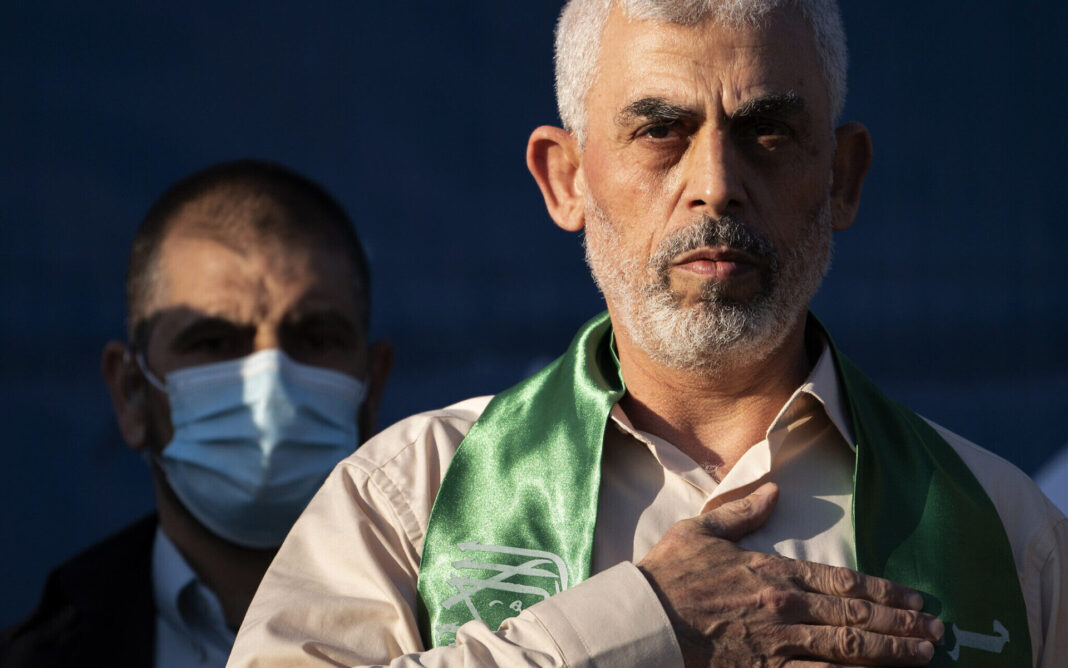Yahya Sinwar, the Hamas leader behind the deadly October 7 attacks on Israel, was reportedly killed in what appears to be an unexpected encounter with Israeli forces. For over a year, Sinwar managed to evade one of the largest manhunts in modern history, orchestrated by Israel after he masterminded the attacks that killed over 1,200 people and resulted in the capture of 251 hostages. His death, however, came not through targeted intelligence but during a routine Israeli military patrol in Rafah, a city in southern Gaza.
On Wednesday, Israeli soldiers, part of a routine patrol, engaged three suspected militants in a building, likely unaware that Sinwar was among them. After a firefight, they cleared the rubble and found the body of Sinwar, whose death was confirmed by Israeli authorities. The significance of this discovery sent shockwaves across Israel and the international community, as Sinwar had been considered one of the world’s most wanted men.
Yahya Sinwar was a central figure in Hamas and known for his extreme militancy. After spending 22 years in an Israeli prison for killing two Israeli soldiers, he was released in a prisoner swap in 2011.
Once free, he quickly rose to prominence within Hamas, directing both its political and military strategies. His legacy reached a peak on October 7, 2023, when he coordinated a large-scale surprise attack on Israel, killing civilians and military personnel, and taking hundreds of hostages.
Sinwar’s death is seen by many Israelis as a crucial milestone in the ongoing conflict with Hamas. Amir Ohana, Speaker of Israel’s Knesset, took to social media to declare that Sinwar’s elimination marked a turning point and urged Hamas fighters to lay down their weapons. Ohana suggested that, without Sinwar’s leadership, continuing the armed struggle was pointless. His remarks hinted at a broader desire to weaken Hamas’ resolve after losing its top leader.
In Israel, Sinwar was often viewed as a symbol of malevolence, and his elimination is perceived as not just a military success but also a psychological blow to Hamas. For Israeli Prime Minister Benjamin Netanyahu, Sinwar’s death offers a significant political victory, especially after intense domestic criticism over the government’s preparedness for and response to the October 7 attacks. Political analysts in Israel note that Netanyahu stands to gain considerable credit for Sinwar’s death, which many believe “had to happen” to resolve an ongoing wound within Israeli society.
However, while Sinwar’s death represents a symbolic victory, it’s less clear how it will affect the broader dynamics of the war. Netanyahu’s initial remarks following the announcement made it clear that Israel’s military operations in Gaza are far from over. The prime minister vowed that the mission would not conclude until all Israeli hostages held by Hamas are returned, though many are feared dead.
The killing of Sinwar may not only impact Hamas and Israel’s conflict in Gaza but could also influence regional dynamics, including Israel’s tensions with Hezbollah in Lebanon and its adversarial relationship with Iran. Despite the symbolic victory, some analysts caution that it might not de-escalate these broader conflicts, which remain dangerously volatile.
The impact of Israel’s military actions over the past year has been devastating in Gaza. Over 42,000 Palestinians have been killed by Israeli attacks, with more than 76,000 injured, and at least 1.5 million people displaced from their homes. Much of Gaza’s infrastructure has been reduced to rubble, exacerbating the humanitarian crisis in the region. Sinwar’s death, while a key moment, doesn’t signal an end to the conflict. Israeli officials have made it clear that military operations will continue until their objectives, including the release of hostages and the dismantling of Hamas’ military capabilities, are achieved.
In essence, while Sinwar’s elimination represents a key turning point in the war against Hamas, the broader conflict remains far from resolved. The path ahead for Gaza, Israel, and the broader region remains uncertain, as tensions continue to simmer on multiple fronts.





